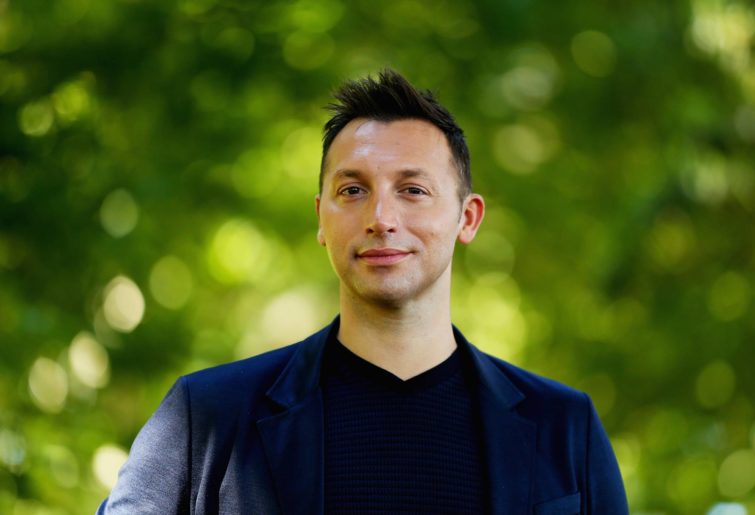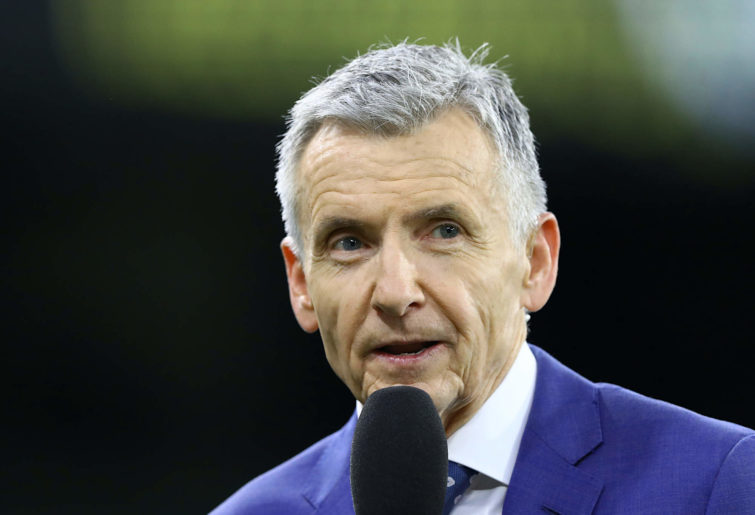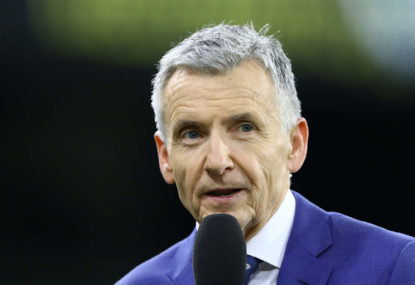When sports journalist Patrick Smith let rip after what he felt was an “unprofessional” call of the men’s 10,000 metres by iconic broadcaster Bruce McAvaney, we were all reminded just how much personal preference and taste dictates our enjoyment of sports commentary.
Personally, I felt McAvaney’s call – made via a studio TV monitor instead of live in the stadium due of COVID – was as efficient, knowledgeable and professional as the many thousands he has broadcast over his long and distinguished career.
Social media reaction suggested that Smith had seriously misread the room, with McAvaney’s attention to the place-getters not necessarily the result of ignoring the efforts of Australia’s Patrick Tiernan, as he collapsed his way through the final lap of the race.
Yet, for some reason, McAvaney had riled the veteran journalist.
The free-to-air coverage of the games has been far from smooth sailing.
Serious questions have been raised around events being deceptively broadcast in delay, nothing new for Olympics coverage, and the requirement for fans to frantically change channels at key stages of play has led many to feel a little peeved at what the network has served up thus far.
The somewhat imperfect images beaming in from Tokyo have also disappointed many. However, the control over them may indeed be well beyond that of the Australian broadcaster, with Seven admirably attempting to cover an Olympics remotely.
The voices we hear on our screens can often fill the emotional and factual spaces of the sports we watch and at other times, rub us the wrong way to the point of annoyance.
Such variation was clearly on show as the Australian team kicked off its aquatic charge, in what now looks like being an incredibly successful overall Olympic campaign.
Ian Thorpe was understated, blunt, economical and most importantly, honest in his assessments of individual swimmers and their opposition throughout the opening week of competition in the pool.

Ian Thorpe (Photo by Getty Images)
Sadly, Lord Mayor of Perth Basil Zempilas struggled, with Thorpe forced on numerous occasions to correct clumsy and awkward statements.
The harder Zempilas tried, the better off he would have been to mute his microphone and leave it to Thorpe, the highlight being a question about Katie Ledecky’s kick rate, to which Thorpe simply replied, “She’s not kicking.”
Many football fans resorted to the use of the 7plus app, as opposed to suffering through the commentary of Brenton Speed on the main channel.
A divisive figure in the Australian round ball game after his extended run in commentary on Fox Sports, Speed calls just about everything there is to call; something that continues to suggest to football fans that his knowledge of the game itself may not be up to the standard required.
Together with Georgia Yeoman-Dale, Speed caused many to head elsewhere for commentary, as the Matildas continued their run to the medal matches.
After writing some weeks back that Yeoman-Dale should be a part of Paramount+/Network Ten’s new football broadcasting team, I have changed my mind.
Her analysis has been weak, comments forced and both littered with error after error in expression.
McAvaney has been blessed with the brilliantly passionate and expressive Tamsyn Manou by his side.

(Photo by Robert Cianflone/Getty Images)
As a world indoor 800-metre champion, her pedigree speaks for itself and as a viewer, their ability as a duo to leave one feeling more informed about the Australian athletes and the entire athletics competition is impressive.
With former Olympian Dave Culbert dealing predominantly with the field events, the trio set a high bar.
In a similar vein, former Olympians Scott McGrory and Anna Meares have been superb at the velodrome, despite Australian fortunes not producing many medals to this point in the competition.
John Casey and one of Australia’s most loved athletes Andrew Gaze have worked well together on the basketball. Gaze’s passion cuts through the screen and Casey always calls a decent game.
The rather subdued, yet knowledgeable, insights offered by Andrew Bogut have also contributed to their excellent broadcasts.
The thoughts of swimming legend Leisel Jones and rowing gold medallist Nick Green have been refined and insightful, while Sydney 2000 water polo gold medallist Debbie Watson was brilliant in explaining all the mysterious underwater action that takes place during an average match.
All in all, there have been many hits for the network, but along with Speed and Zempilas, some distinct misses as well.
Hamish McLachlan, Abbey Gelmi, Luke Darcy and Edwina Bartholomew have been a little too fuelled with patriotism as hosts in the main studio, despite some of their ex-Olympian colleagues like Matt Shirvington and Johanna Griggs desperately attempting to show them the way.
Poolside, Nathan Templeton managed to continue his penchant to ask inane questions that do little more than plant words and ideas into our swimmers’ minds soon after their events and despite enjoyment of the event and my best efforts to understand it, I’m not too sure what language Nick Boserio and Mitchell Tomlinson were speaking while commentating on the skate-boarding.
Overall, Tokyo 2020 appears to have been the morale boost many hoped it would be. Sadly, in amongst some of the superb broadcasts that have brought us to tears and smiles, we’ve also had to listen to plenty of nonsense.
Overall, though, the Seven Network has done well and I guess you just can’t please everyone.































































































